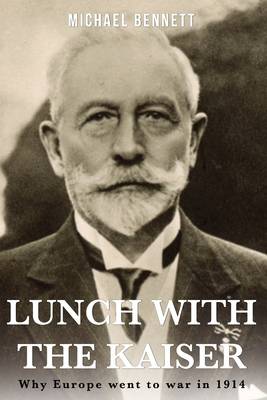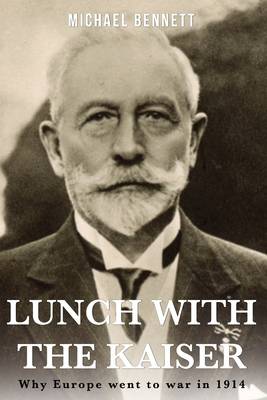
En raison d'une grêve chez bpost, votre commande pourrait être retardée. Vous avez besoin d’un livre rapidement ? Nos magasins vous accueillent à bras ouverts !
- Retrait gratuit dans votre magasin Club
- 7.000.000 titres dans notre catalogue
- Payer en toute sécurité
- Toujours un magasin près de chez vous
En raison de la grêve chez bpost, votre commande pourrait être retardée. Vous avez besoin d’un livre rapidement ? Nos magasins vous accueillent à bras ouverts !
- Retrait gratuit dans votre magasin Club
- 7.000.0000 titres dans notre catalogue
- Payer en toute sécurité
- Toujours un magasin près de chez vous
11,45 €
+ 22 points
Description
'Lunch with the Kaiser' provides remarkable clarity on the last days of July 1914 when war, at least between Germany and Russia, could still have been averted. What emerges is a narrative of events driven by the beliefs of a handful of decision makers in Berlin and St Petersburg, rather than any objective strategic assessment, as their respective allies in Vienna and Paris, pushed and pulled them ever closer to war. In London, a government removed from the pressure for immediate mobilsation by the power of the Royal Navy, nevertheless rushed to war with what the British historian AJP Taylor termed 'indecent haste'. The political justification presented to the House of Commons, the strategic imperative of preventing a German hegemony in Europe, was used to conceal the Foreign Office's overwhelming need to intervene to continue its appeasement of St Petersburg due to policy miscalculations which had left British imperial interests in Asia vulnerable to Russian aggression. A series of fictional interviews, conducted with Kaiser Wilhelm II in October 1938 as he lived out his old age in exile, sets out the chronology of events, revealing how Austrian recklessness, German miscalculation, Russian precipitation and French ambition, combined with British policy errors, led Europe to war. The book does not absolved Wilhelm from his share of responsibilty for the events of 1914 but places it in the context of decisions made by others who history has allowed to escape into undeserved obscurity.
Spécifications
Parties prenantes
- Auteur(s) :
- Editeur:
Contenu
- Nombre de pages :
- 206
- Langue:
- Anglais
Caractéristiques
- EAN:
- 9781671000827
- Date de parution :
- 03-12-19
- Format:
- Livre broché
- Format numérique:
- Trade paperback (VS)
- Dimensions :
- 152 mm x 229 mm
- Poids :
- 308 g

Les avis
Nous publions uniquement les avis qui respectent les conditions requises. Consultez nos conditions pour les avis.






